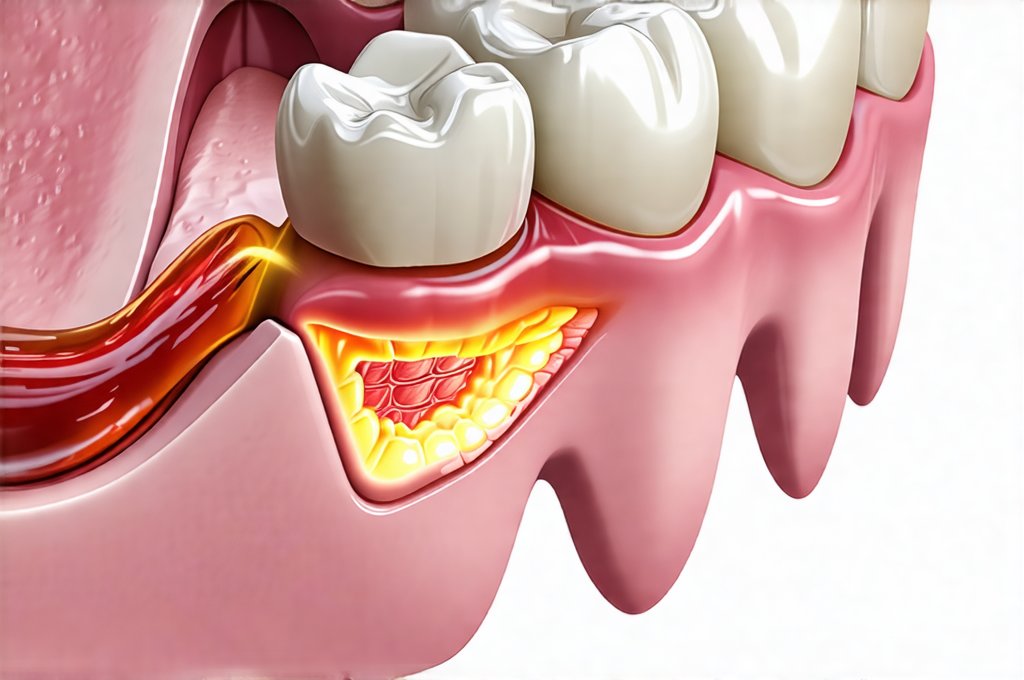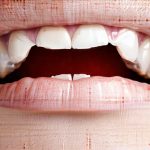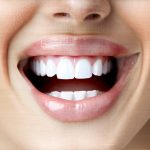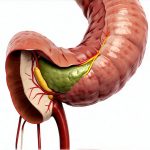Acid reflux, also known as gastroesophageal reflux disease (GERD), is a surprisingly common condition affecting millions worldwide. It occurs when stomach acid frequently flows back up into the esophagus – the tube connecting your mouth to your stomach. While many associate it with heartburn and indigestion, its effects can extend far beyond the digestive system, often manifesting in unexpected places like your teeth. This seemingly unrelated connection stems from the corrosive nature of stomach acid and its ability to weaken tooth enamel over time, leading to a host of dental problems, most notably tooth sensitivity. Understanding this link is crucial for both preventing damage and addressing existing issues.
The insidious part about acid reflux’s impact on oral health is that it can be subtle initially. You might experience minor discomfort or notice slight changes in your teeth without immediately connecting them to digestive issues. This delay in recognition often allows the erosion process to continue, gradually increasing sensitivity and potentially leading to more significant dental concerns. It’s important to remember that while occasional heartburn is normal, frequent or severe reflux warrants attention – not just for your esophagus, but also for the health of your smile. The following information will explore how acid reflux can specifically contribute to tooth sensitivity and what steps you can take to protect your teeth.
Understanding the Acid-Enamel Connection
The primary way acid reflux causes dental issues is through dental erosion. Unlike cavities, which are caused by bacteria breaking down sugar on the tooth surface, erosion is a chemical breakdown of the enamel – the hard outer layer protecting your teeth. Stomach acid is incredibly strong; it’s designed to break down food! When it repeatedly comes into contact with your teeth, even in small amounts, it begins to dissolve the mineral structure of enamel. This process happens silently and often goes unnoticed until significant damage has occurred. Over time, erosion thins the enamel, exposing the underlying dentin layer.
Dentin is softer and more porous than enamel, containing microscopic tubules that lead directly to the nerve of the tooth. These exposed tubules are what cause tooth sensitivity. When stimuli like hot, cold, sweet, or acidic foods come into contact with the tooth, they trigger signals along these tubules to the nerve, resulting in a sharp, fleeting pain. The more enamel eroded, and the more dentin exposed, the greater the sensitivity becomes. It’s not just about discomfort; prolonged erosion can lead to structural damage, increasing the risk of cavities, chips, cracks, and even tooth loss.
This process isn’t limited to obvious reflux episodes either. Even ‘silent reflux’, where you don’t experience typical heartburn symptoms, can still cause enamel erosion as acid rises into the mouth during sleep or while lying down. This makes it particularly challenging to detect and address early on. Essentially, your teeth become collateral damage in a digestive process gone awry. If you are experiencing persistent discomfort, it is important to understand food sensitivity.
The Role of Lifestyle & Management
Managing acid reflux is key to protecting your dental health. While medication prescribed by a doctor can effectively reduce stomach acid production, lifestyle changes play a critical role in minimizing its impact. – Dietary adjustments are often the first line of defense: avoiding trigger foods such as caffeine, alcohol, chocolate, spicy foods, and acidic fruits/juices can significantly lessen reflux episodes. – Eating smaller, more frequent meals instead of large ones helps reduce pressure on the stomach. – Avoiding eating close to bedtime allows your stomach to empty before lying down.
Beyond dietary changes, certain habits can exacerbate or alleviate reflux. Elevating the head of your bed by a few inches can help prevent acid from flowing back up into the esophagus while you sleep. Maintaining a healthy weight is also important, as excess weight puts pressure on the abdomen, increasing the risk of reflux. Smoking weakens the lower esophageal sphincter (LES) – the muscle that prevents stomach acid from backing up – so quitting smoking can be extremely beneficial. Regular dental check-ups are paramount. Your dentist can detect early signs of erosion and provide preventative measures like fluoride treatments to strengthen enamel. You may also experience ear pain related to acid reflux.
Recognizing the Signs & Symptoms
Identifying tooth sensitivity as a potential consequence of acid reflux is the first step towards addressing it. The symptoms aren’t always straightforward, which is why many people miss the connection. Look out for: – Sharp, temporary pain in response to temperature changes (hot coffee, cold water). – Discomfort when eating sweet or acidic foods. – A feeling like air is passing through your teeth. – Visible enamel erosion (teeth appearing flattened, chipped, or discolored). – Increased sensitivity along the gumline.
It’s crucial to differentiate between sensitivity caused by acid reflux and that from other sources, such as cavities or aggressive brushing. If you suspect acid reflux is a contributing factor, consider whether you experience frequent heartburn, indigestion, or regurgitation. A thorough dental examination, combined with your medical history, can help pinpoint the cause of your sensitivity. Don’t ignore these symptoms; early intervention can prevent further damage and preserve your oral health. Some individuals find that low acid diets can help manage their reflux.
Protecting Your Enamel: Preventative Measures
Even if you’re managing acid reflux effectively, taking proactive steps to protect your enamel is essential. – Fluoride treatments are a cornerstone of enamel protection. Fluoride strengthens the enamel, making it more resistant to acid attacks. Your dentist can apply fluoride varnish or recommend at-home fluoride rinses. – Using a toothpaste specifically designed for sensitive teeth can help block exposed dentinal tubules and reduce pain. – Avoid brushing immediately after acidic foods or drinks; wait at least 30 minutes to allow your enamel to remineralize. – Consider using a soft-bristled toothbrush and gentle brushing technique to minimize abrasion.
Another helpful strategy is to rinse your mouth with water or a fluoride mouthwash after experiencing reflux episodes, even if they are silent. This helps neutralize acid and wash away any residual stomach contents. Furthermore, chewing sugar-free gum can stimulate saliva production, which naturally buffers acid and aids in remineralization. It’s about creating a multi-faceted approach to protect your teeth from the ongoing effects of acid exposure. Sometimes fatigue is also present – you should consider if dairy sensitivity could be at play.
When to Seek Professional Help
While preventative measures can significantly reduce enamel erosion, professional intervention is often necessary when damage has already occurred. If you experience persistent tooth sensitivity that interferes with eating or daily activities, consult both your dentist and your doctor. Your dentist can assess the extent of enamel loss and recommend appropriate treatments, such as: – Fluoride applications to strengthen remaining enamel. – Dental sealants to protect exposed dentin. – Composite fillings or crowns to restore damaged teeth.
Your doctor may adjust your acid reflux medication or explore alternative therapies to better manage the underlying condition. Communication between your dental and medical teams is vital for a comprehensive treatment plan. Ignoring persistent sensitivity can lead to more serious problems down the line, including cavities, toothaches, and even tooth loss. Don’t hesitate to seek professional help; early diagnosis and intervention are key to preserving your smile and overall oral health. You should also be aware of how acid reflux affects dental erosion. Also consider if fermented foods could contribute to your symptoms.


















